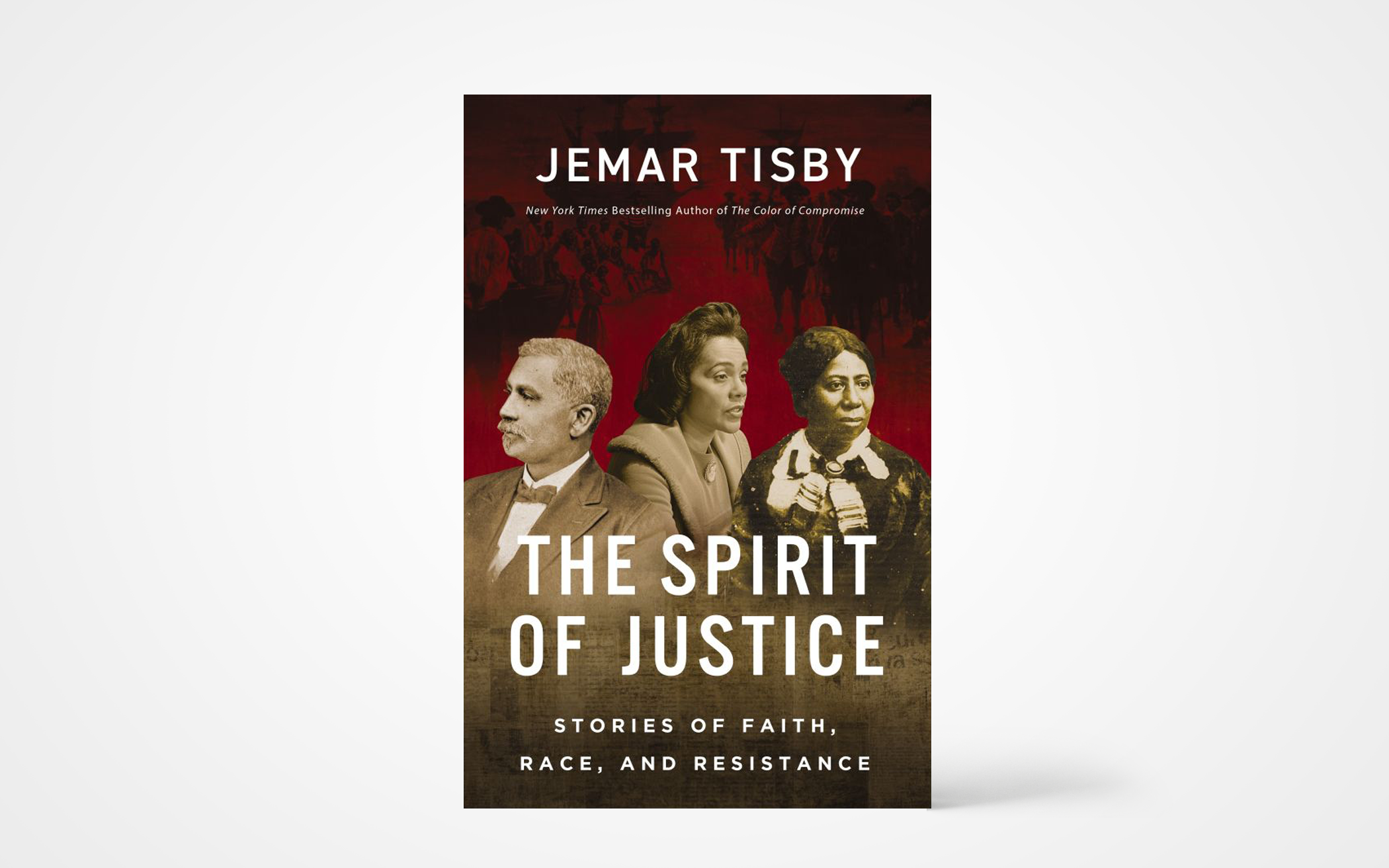Jemar Tisby, author of the bestselling The Color of Compromise and award-winning How to Fight Racism, continues his study of racism in his new book The Spirit of Justice. This time he looks at the history of the United States from its earliest settlement by non-Native Americans to the present as it relates to the Black fight for justice and liberty.
He asks, “What manner of people are those who courageously confront racism instead of being complicit with it? And what can we learn from their example, their suffering, their methods, and their hope?”
He answers by “focus(ing) primarily on the beliefs and action of Black Christians.” Tisby puts their actions into the context of American history, revealing how their faith in God was the basis for their actions on behalf of their brothers and sisters as well as themselves.
He starts with the colonial era when “the status of people of African descent had already begun to harden into an oppressed racial class.” Yet poets such as Phillis Wheatley and advocates such as Benjamin Banneker felt called to voice their faith and anti-slavery sentiments.
In the pre-Civil War anti-slavery movement, Frederick Douglass and his wife Anna Murray Douglass stand out. Harriet Tubman and Elizabeth Keckley are explored in the chapter on the Civil War, and in his study of the rise of Black institutions during the post-Civil War years Tisby highlights Elias Camp Morris and the National Baptist Convention and William J. Simmons and the Kentucky Normal and Theological Institute.
Tisby also looks at the civil rights movement and Martin Luther King Jr., talking through some of the lesser-known stories of his life and moving beyond the “I Have a Dream” speech to look at King’s vision for economic considerations for Blacks.
At first glance, The Spirit of Justice might look like a compilation of profiles of prominent Black voices in the freedom movement. But it is so much more than that. Tisby offers a unique survey of American history focused on the fight for Black freedom and its ties to the Christian faith.
He also explores key women in the Black freedom movement such as Coretta Scott King, Ella Baker and Ruby Dee, and focuses on Shirley Chisholm and Myrlie Evers-Williams in the Black power era. He also taps into men and women working today to further the struggle for Black freedom and liberty.
Tisby’s writing is clear and his research is thorough. Readers will learn much about American history, the faith of Black people fighting for their freedom, and how the two are inextricably combined. As Tisby says, “The spirit of justice still speaks.” (Zondervan Reflective)
About the Author
Ann Byle is author of Chicken Scratch: Lessons on Living Creatively from a Flock of Hens. She is a freelance writer and author of several other books, magazine articles, and reviews. She lives in Grand Rapids, Mich.

